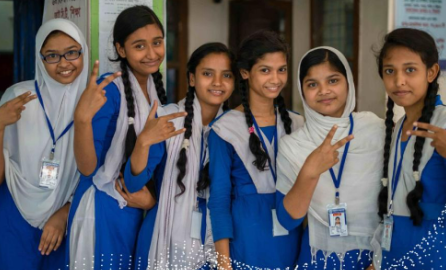Women in Counterterrorism

-
Gender marker: G2-Promotes gender equality as a primary objective
-
Period of implementation: 2021 - 2023
-
Amount: EUR 390,000
-
Geographical area: Global
-
Link to the project:
-
GAP III’s Areas:
-
Equal participation and leadership
-
Women, peace and security
-
Women face a number of challenges in counterterrorism efforts, including regulatory, economic, sociocultural, organisational, structural and systemic barriers. Addressing these issues will help to improve both participation (i.e. the number of women in the field) and representation (i.e. improving women’s activities and responsibilities) in law enforcement, the military, intelligence, the judiciary and policy development and, more broadly, to advance development, human rights and fundamental freedoms as part of the EU’s external action.
Recognising this, the EU has made gender a priority during its tenure as the co-chair of the Global Counterterrorism Forum (GCTF) and recently completed the Guidelines to promote the role of women in security and counterterrorism focusing on criminal justice, law enforcement, military, intelligence, judiciary, and policy development and implementation, as part of the Women in Counterterrorism project.
The project uniquely focused on promoting a strategic approach and understanding of the role of women in the criminal justice response to terrorism, which had been identified as an understudied area.
The research and global consultation for the project led to the development of 10 recommendations for improving gender balance in criminal justice responses to terrorism, namely:
- Capitalise on factors favourable to women’s promotion;
- Develop and propose tailored solutions;
- Adopt a comprehensive approach;
- Demonstrate the operational benefits of greater gender balance in the criminal justice response to terrorism;
- Improve the recruitment, retention and promotion of women;
- Focus on practical details;
- Recruit men as allies;
- Inspire and attract women;
- Allocate funding to targeted policies; and
- Sustain women’s promotion in the criminal justice response to terrorism for the long term.
The report also provides concrete examples of how countries have addressed specific shortcomings.
Based on these recommendations, comprehensive and inclusive guidelines have been developed as a reference for practitioners, policymakers, and other actors to support the operationalisation of gender policies and ensure that gender is taken into consideration in counterterrorism capacity-building initiatives. The guidelines reflect a "gender by design" approach and were purposefully kept general to enable their adaptation to different geographical, cultural, and sectoral contexts. They are structured around key project phases, illustrated with concrete examples, best practices and lessons learned from around the globe and accompanied by a checklist.
The project, run by the Brussels chapter of Women in International Security (WIIS) and financed by the Service for Foreign Policy Instruments (FPI) has gathered input from different actors, including judicial, law enforcement, political, diplomatic and civil society practitioners in partner countries and the EU, fostering collaboration and knowledge sharing on research, specific case studies and role models, with a view to enhancing the effectiveness of counterterrorism strategies.
These guidelines were presented at the EU Event on the role of women in counterterrorism held in Madrid in April 2023, which identified the need for specific initiatives to further raise awareness, operationalise the guidelines, and enable networks of women practitioners in counterterrorism. One such initiative is a toolkit currently being developed under the umbrella of the Global Counterterrorism Forum. Additional efforts are also being discussed as part of the Neighbourhood, Development, and International Cooperation Instrument (NDICI) programming for 2024.
“Gender balance in the criminal justice response to terrorism is both a moral and legal imperative under a rights-based approach lens, but it is also a driver of efficiency through improved cognitive diversity, situational awareness, risk assessment, ability to conduct specific tasks and building trust with communities.” Maria Rosa Sabbatelli, Head of Unit, Service for Foreign Policy Instruments, European Commission
